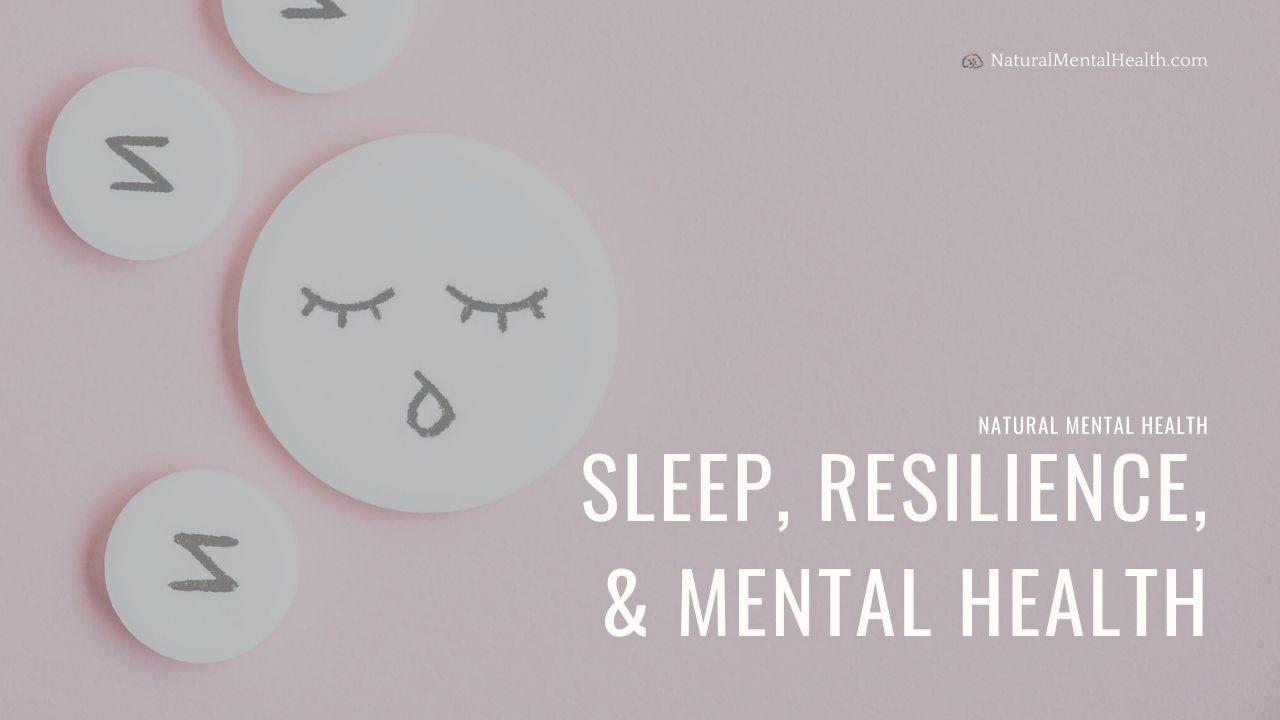
Sleep, Resilience, and Mental Health
Mar 05, 2020Good Sleep Is Non-Negotiable
Your sleep, mood, and brain function are intimately related. Scientific studies tell us that our emotional states affect sleep and that sleep affects emotions. The good news is that you can create better sleep with fairly simple strategies.
How Well Do You Sleep?
Think about how you would honestly answer the following questions:
- How many hours do you sleep each night?
- How well do you sleep at night? Do you feel rested after you've slept a full night?
Did you know that your answers to these questions are intimately connected to your mood and brain function? Difficulty sleeping is sometimes the first symptom of a mood disorder; 15-20% of people diagnosed with insomnia will develop major depression (1). Getting your sleep right is one of the best things you can do if you have a mood disorder. Studies show that improving insomnia boosts the chances of recovering from depression by a remarkable 50%!
Recent studies have also shown that not only does sleep affect your emotions, your emotional state can affect your sleep. Anxiety, stress, and over-arousal can interfere with your ability to fall asleep and stay asleep, which can in turn create a predisposition for mental health issues. Sleep problems can quickly become a vicious cycle that is challenging to break. That's why we've created easy-to-follow resources to help you improve your sleep.
Check your hours. First, consider whether you are getting enough sleep. Humans need different amounts of sleep depending on their age. See the recommended ranges below.
Infants aged 4-12 months need 12-16 hours a day (including naps).
Children aged 1-2 years need 11-14 hours a day (including naps).
Children aged 3-5 years 10-13 hours a day (including naps).
Children aged 6-12 years need 9-12 hours a day.
Teens aged 13-18 years need 8-10 hours a day.
Adults aged 18 years or older need 7–8 hours a day.
Do you feel rested? Second, consider whether you are getting quality sleep. You don't have to be up the whole night to feel the negative effects of sleep deprivation. Studies have shown that even partial sleep deprivation has a significant effect on mood (1). This means that people experiencing mental health symptoms might not consider their sleep habits as a possible contributing factor if they are sleeping the recommended number of hours. However, even if it seems like you're sleeping ok, you may not be getting enough high-quality sleep to support healthy brain function.
The NMH Sleep Quiz
Download and take our simple sleep quiz below to evaluate your sleep habits. (The best way to take the quiz is to print it, but if a printer is not available, you can score the quiz on a separate sheet of paper.) If your quiz results show healthy sleep practices, congratulations! You're already doing something incredibly valuable for your mental (and physical!) health. You can still review the Sleep resources here if you like, or move on to Foundations or Digestion categories or one of the Pathways to Resilience mini-courses.
Download and take the sleep quiz here.
If the quiz does show some areas for improvement check out our resources for nourishment, movement, sensory awakening practices specifically designed to help you build healthy sleep habits.
RELATED ARTICLE
Create Your Own Sleep-Friendly Space
All of your daily movements and routines should be rewarded with the best sleep you can get. Simple changes to your bedroom can help make that happen. Read more.








